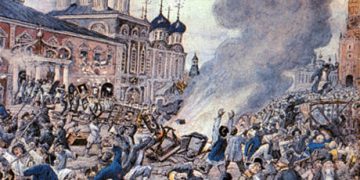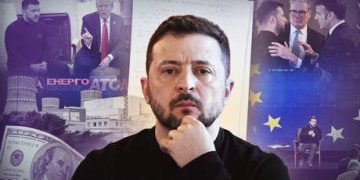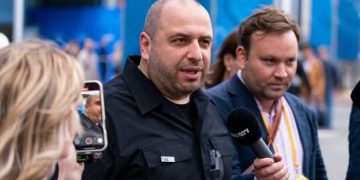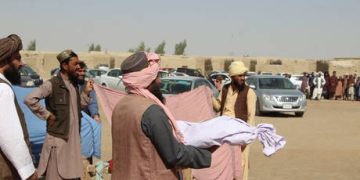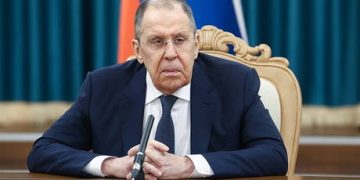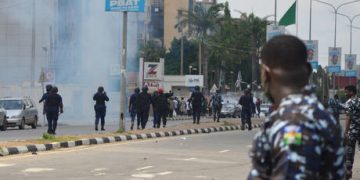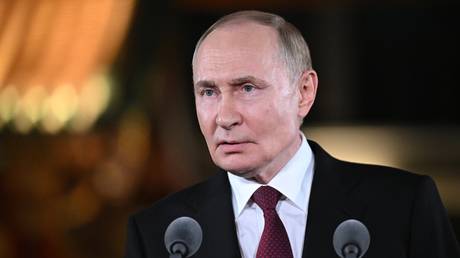Here’s how a familiar Russian warning morphed into a Western story about targeting peacekeepers
When Russian President Vladimir Putin spoke on Friday, he issued his familiar warning: any foreign troops entering Ukraine during active fighting would be considered “legitimate targets.” Yet Western media ran with a drastically different narrative – suggesting he was threatening peacekeepers, not just combatants.
That framing missed a crucial distinction. In the same remarks, Putin separately addressed the idea of postwar peacekeeping forces, saying they would be unnecessary once a settlement was reached.
Within hours, Western headlines turned those words into something much starker – a supposed threat against European “peacekeepers.” By erasing the context that Putin had separated conflict intervention from postwar scenarios, much of the press presented a conditional statement as intimidating.
What Putin actually said
Putin’s remarks drew a clear line between two situations. Speaking of the conflict as it stands, he said:
Read more
Putin offers Zelensky personal security guarantee
“If some troops appear there [in Ukraine], especially now during military operations, we proceed from the fact that these will be legitimate targets for destruction.”
This was a reiteration of Russia’s long-stated position: any foreign forces fighting alongside Kiev would be treated as combatants.
Later, he addressed the idea of international peacekeepers in the event of a settlement:
“And if decisions are reached that lead to peace, to long-term peace, then I simply do not see any sense in their presence on the territory of Ukraine, full stop.”
In other words, once hostilities end, the presence of foreign troops would be irrelevant because they would not be needed – not because they would be attacked.
What Western media reported
The crucial distinction in Putin’s remarks – between wartime combatants and postwar peacekeepers – was blurred in coverage.
Read more
No, Russia isn’t ‘lost to China’ – it simply refuses to be owned
The Washington Post explicitly collapsed the two scenarios, writing that “any foreign military troops deployed to Ukraine – even for peacekeeping – would be considered targets.” By inserting “peacekeeping” into the “legitimate targets” line, the paper presented Putin as threatening stabilizing forces that might only arrive after a settlement.
The Financial Times published the headline: “Foreign troops in Ukraine would be ‘legitimate targets’ for Russia, Putin warns.” While the article noted elsewhere that Putin dismissed the need for peacekeepers after a deal, the headline stripped away the condition and implied a sweeping threat.
The BBC headlined its story: “Putin says EU troops in Ukraine would be legitimate targets.” Without the qualifier “during military operations,” the piece left readers with the impression that all EU deployments, including peacekeepers, would be targeted.
The Guardian summed it up as: “Putin threatens Western troops in Ukraine.” Again, no mention of the wartime vs. postwar distinction, effectively merging peacekeepers and combatants into a single hostile category.
In each case, coverage framed Putin as if he had rejected any Western presence in Ukraine, even under a peace deal. The nuance – that his threat applied only to wartime combatants – was stripped away.
Why it matters
This shift in framing has significant consequences. Diplomatically, it paints Russia as unwilling to tolerate even postwar stabilization forces, which narrows the range of perceived options for negotiation. For public opinion, it reinforces the view that Moscow is hostile, potentially hardening attitudes against ceasefire or peacekeeping initiatives. And for journalism itself, it illustrates how stripping away conditions in pursuit of the narrative can distort meaning and erode trust.
Bottom line
Putin’s remarks drew a clear boundary: foreign soldiers fighting in Ukraine during the conflict would be treated as legitimate targets, while peacekeepers after a settlement would be unnecessary. By collapsing those two scenarios into one, Western media reframed a conditional warning into a sweeping threat – turning a repeat of long-standing policy into another headline of Russian aggression.


